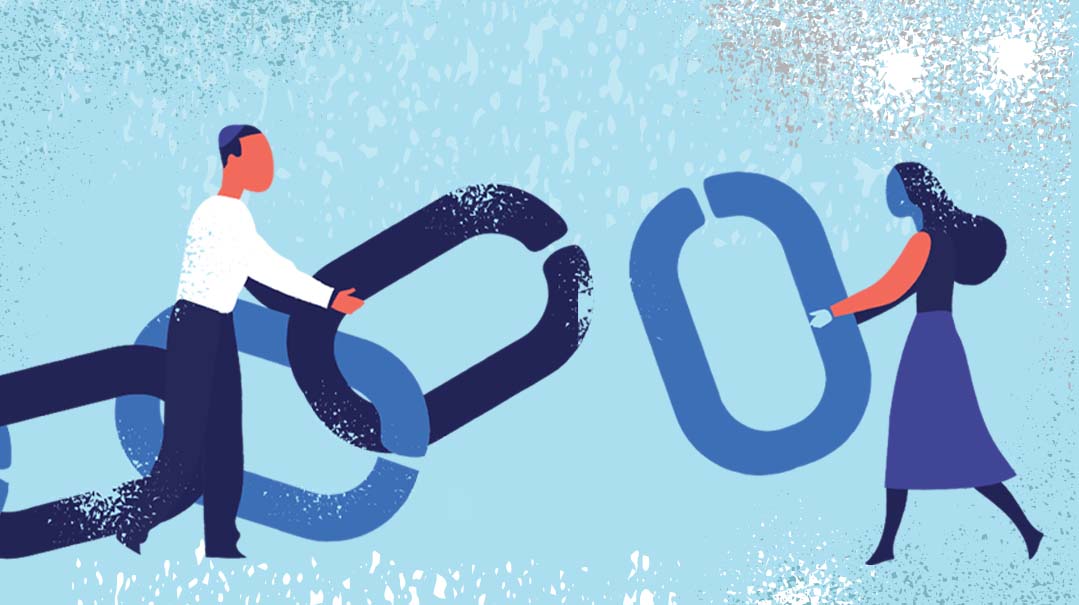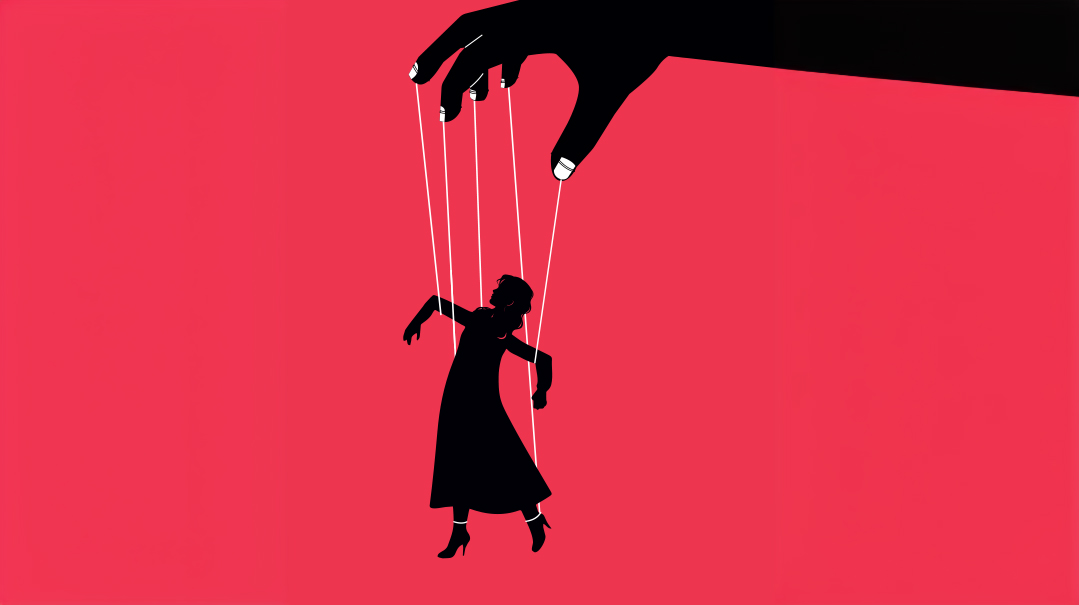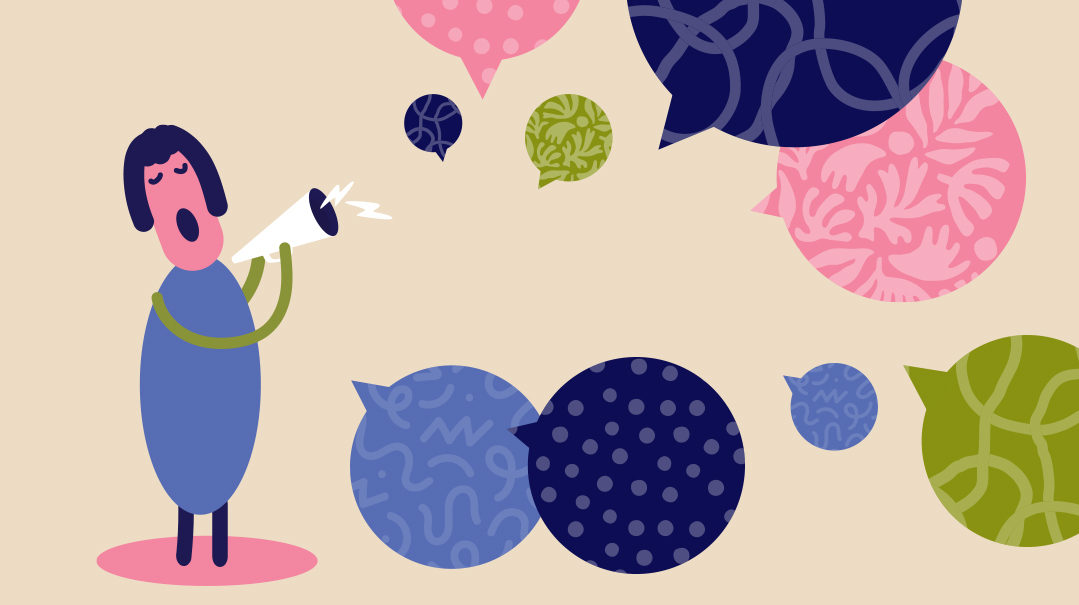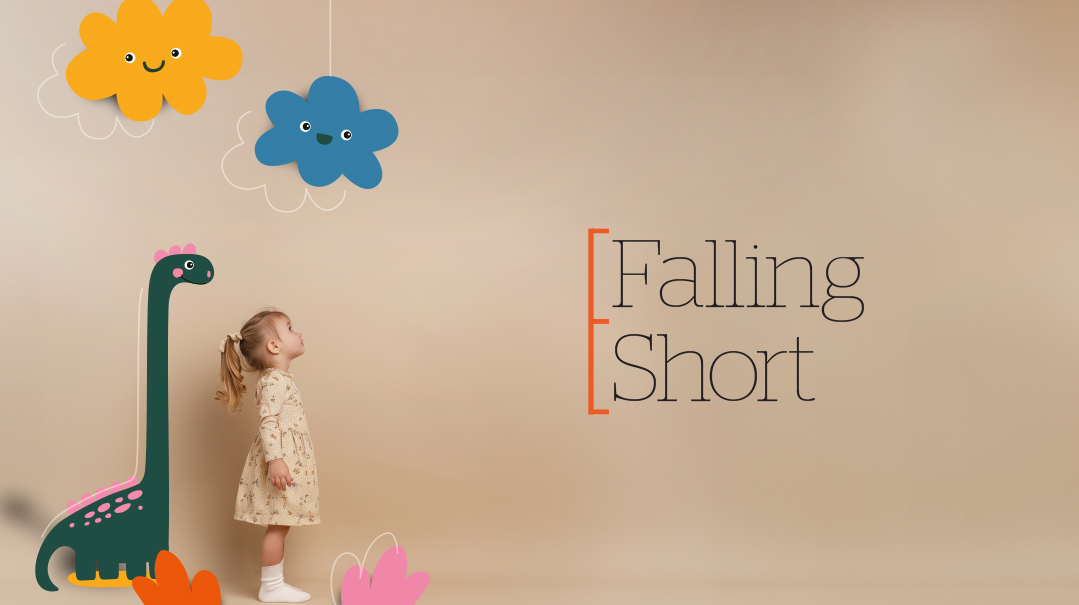Connection Wanted
| January 18, 2022Behind every couple's fight is a yearning to reconnect; how EFT can change their dance

With Shoshana Itzkowitz
The world is a lot less intimidating when we have someone to count on. And if that person is our spouse,we can get through almost anything. As a LCSW, I believe most couples can achieve the level of connection where they can count on their spouse, and their spouse can count on them.
I’d trained in various modalities of couples’ therapy, but when I heard about Emotionally Focused Therapy (EFT), I knew I’d found my calling. And after seeing the success of this approach, I switched over to using EFT exclusively.
The premise of EFT (not be confused with Emotional Freedom Technique, an alternative tapping treatment for physical and emotional distress) is that our emotions provide important information that guide our decision making. Thus a lack of emotional awareness or a tendency to avoid unpleasant emotions hurts relationships.
EFT emphasizes the importance of emotional engagement, secure attachment, reciprocal connection, and healthy responses between partners. Secure and healthy attachment, a fundamental element of EFT, is a basic need, like food and oxygen. It’s the ability to experience consistent acceptance in important relationships. During sessions, the therapist helps the couple develop these capacities, coaching them as they learn new, healthy ways to interact.
How Do You Attach?
An EFT therapist will look at challenges a couple is having through an attachment lens — the attachment they each had previously. There might be previous trauma when it comes to attachment, and this impacts what the couple experiences now.
In relationships, an issue usually isn’t one person’s fault, but a result of a negative cycle in the couple’s interactions. In EFT, it’s the therapist’s role to help each spouse deepen the emotions they’re feeling, present them properly, have the other spouse remain engaged, and enable each spouse to learn how to accept both their emotions as well as their spouse’s emotions. Therapists work to change a cycle right there in the room, rather than send the couple home to do the work; the more they do it in a session, the more they can do it later at home without a therapist’s involvement, each trusting their spouse will respond appropriately.
EFT therapists will dig deeper to discover the core reason why a couple is emotionally disconnected and don’t feel emotionally safe with each other. Underneath the surface of conflict is a cry for help; each spouse is crying out to his/her partner for a more secure attachment.
Secure attachment is something we crave from a very early age. Securely attached adults have a more organized and positive sense of self, are able to see others as trustworthy, and view themselves as lovable and capable. The result is flexibility and adaptability in relationships and resilience in times of stress and trauma. When there’s secure attachment, we’re able to tune in to a partner’s needs and desires, and are able to hear and send signals for help, leading to more open and direct communication styles.
When our spouse is emotionally unavailable, we feel alone in our marriage. We feel fear. We all experience fear during an argument, but when we’re securely attached, the fear dissipates quickly. When we don’t have a secure attachment, we panic and either demand attention to soothe ourselves (pursue) or withdraw to protect ourselves from the pain. These protective behaviors may work at first, but if they happen again and again, neither partner feels safe and each is left feeling worse about one another. These negative dialogues can only be soothed by a partner coming closer emotionally and reassuring the other.
There are three core dynamics when it comes to attachment challenges.
WITHDRAWERS
When couples get into repeated conflict, they enter a negative cycle. We call this cycle a “dance,” because the couple typically exhibits the same “moves” no matter what they’re fighting about. Whether it’s about parenting, money, chores or anything else, during a fight, each one is asking the other, Do I matter to you? Do you accept me? The anger and criticism are calls to draw their partner back in.
Let’s look at some common patterns of couple interactions. Danny and Sarah* had been married for a decade and had a solid marriage. About a year prior to their visit to my office, their youngest child went through a medical crisis that necessitated treatment in another state. They decided Sarah would accompany their toddler while Danny stayed home to work and take care of the rest of the family.
What they had hoped would be a temporary situation ended up being a scary few months. To add to the trauma, Sarah suffered an early pregnancy loss while out of state with their sick child. Sarah and Danny were dealing with these crises feeling very isolated, and both suffered. When Sarah returned home, everything changed. The couple had rarely argued before, but now they were bickering constantly.
In their dance, Sarah and Danny were both withdrawers. Neither one addressed the issues, and each one simply retreated into their own pain, unable to share their feelings with the other. Instead, they argued over petty things and had little patience for day-to-day trivialities. Sarah needed help and felt Danny wasn’t emotionally available, while Danny felt Sarah lacked patience and was anxious and tense all the time. It felt safer for him to pull back without confronting Sarah, so she wouldn’t get even more upset.
After many months of this dynamic, they came for help. Having previously had a wonderful relationship, they were both eager to get back on track. My role as therapist was to slow down the communication so that it didn’t become heated or go off track, make sure they were feeling heard, and ensure that they were emotionally validated by the other. When hearing how someone feels or hearing their version of a shared experience, it’s common for the second spouse to jump in and explain why their spouse shouldn’t feel that way or to diffuse the claim with a No, that’s not how it happened, it was really just…
EFT facilitates moments of connection, new conversations, and deeper communication. At times, it can even feel like the arguments couples have are being recreated, but with a therapist moderating the conversation, it becomes a safe place to share emotions.
Danny and Sarah’s “dance” looked something like this: Danny felt he was trying to share his feelings with Sarah, but was being shut down because of her irritability and defensiveness. He then felt rejected and would withdraw, causing Sarah to feel alone and resentful.
While Danny did truly want Sarah’s connection, it felt safer for him to withdraw. But when each felt validated and supported in a therapeutic setting, they became more attuned and accessible emotionally. It took work for Sarah to soften her approach and hear his pain, and for Danny to reengage emotionally.
In their case, a conversation may have sounded something like this:
Danny: When I try to bring up something she doesn’t want to hear, she just gets this really angry look and shuts down. So there’s no point in even bringing it up — I’ve learned not to say anything.
Sarah: What are you even referring to? Give me an example.
Danny: Yesterday, when I wanted to talk about my parents coming, you said you don’t want to discuss it now. But you never want to! And then you went and answered a call from a friend.
Sarah: (looking really upset) Okay, first of all, that’s not how it happened. I was tired, busy, and yeah, okay, it’s not like I’m thrilled about them coming!
Danny’s feelings about Sarah’s unavailability aren’t being validated. Because it’s important to follow through with the emotion, here’s where the therapist needs to step in and slow them down. The goal is to break this down into smaller pieces so Danny can share how he felt when Sarah brushed him off.
Therapist: Sarah, I see it’s hard for you to hear what Danny is upset about. Maybe you’re feeling blamed? It might also be hard to hear about his pain because you’re dealing with so much, and you’re just trying to get through the day. Am I getting it right?
Sarah: Yes, that’s exactly how I feel! But it’s more — he doesn’t want to hear about how upset I am. He comes home from work and just scrolls through his phone.
Therapist: You’ve both been through so much. You really want to feel connected, but it’s difficult with all the stress you’re under. So, Danny, when you do try to share your feelings, it’s hard for Sarah to hear it. Let me help you with that. What happens to you when you share how you feel and she can’t hear it?
Danny: It’s really frustrating, and it keeps happening. It feels like it can’t change, like it’s hopeless.
Therapist: Frustrating, hopeless… and how does that make you feel?
Danny: Alone, sad…
Therapist: Of course, that’s how someone in your shoes would feel. It’s hard when you feel like you can’t connect to the most important person in your life. Do you think you can look at Sarah and share how you feel in those moments of disconnect?
Danny: I don’t know, it’s hard… I guess I can try, because that’s why we’re here….
The therapist isn’t giving Danny the words to use to convey what he’s feeling. She’s encouraging him to share with his wife, in his own words, what that feels like to him. There are plenty of times where one spouse can’t look at the other in the face while this goes on: Either it’s too hard for the speaker to make eye contact while they’re expressing emotion, or it’s painful for the other spouse to hear this, and they can’t face the other person.
In addition, it’s often hard to hear your spouse’s complaint, and there can be a lot of shooting down and denying what actually occurred. In that case, it’s the therapist’s place to point out that the hurt party is having difficulty hearing what’s being said.
When one spouse sees the other respond in a safe way with a therapist present, they can then try this at home, and trust that their partner will respond appropriately because they’ve witnessed it in session.
With their new understanding, Danny and Sarah began identifying triggers that lead them into a negative cycle. When those dance moves began, they were now equipped with tools to break the cycle and feel more secure, opening up to each other when conflict arose.
After learning these tools, their sessions sounded more like this:
Danny: Things are going well, but I was a little nervous to bring something up that happened this week; I didn’t want Sarah to get defensive and shut me down.
Therapist: I hear you saying you have a new positive cycle most of the time, but it’s hard to trust it, because the negative cycle that was there for so long hurt you badly.
Danny: Yes, it’s like I’m waiting for the other shoe to drop.
Sarah: (visibly uncomfortable, but open) Thank you for sharing that. I wasn’t myself for a long time, but I want us to communicate. I’m listening, and I won’t get angry. I know you’ve seen I’m really trying.
Danny: Thanks. I appreciate it. It’s hard for me to come home from a long day at work and see you’re distracted with your phone.
Sarah: I didn’t realize. Can you let me know next time when it’s happening? I know I’ve gotten upset in the past, but I’ll really try to stop if you remind me.
Thankfully, this couple experienced a relatively fast turnaround, as they’d been a strong couple until this crisis hit. This was a glitch that came up and needed to be rectified rather than an ongoing dynamic for years. They learned how to get through a crisis, and they came out stronger on the other side.
PURSUER AND WITHDRAWER
Another, perhaps more common, “dance” in marriage is that of pursuer and withdrawer. Leah and Yossi* were separated and on the verge of divorce when they came for therapy. Things had been terrible for 20-plus years, with verbal and emotional abuse and little to no happiness. It was incredibly inspiring and impressive that this couple, with their marriage such a mess, was coming to try to fix something that had been broken for so long.
They had a family of young-adult children and they wanted to see if there was a way they could at least call a ceasefire to keep their family intact. Yossi had made bad mistakes in the past, but wanted to move on. Leah was frequently triggered by the past traumas in their relationship and would pursue Yossi with hurtful comments about his former behavior. These barbs felt like daggers to Yossi, opening up old wounds, and as a result, he would withdraw. When he withdrew, she’d pursue further.
Obviously, this work would take far longer than a case such as Danny and Sarah’s. This couple had no solid foundation and had to undo lots of toxic dynamics before they could begin to build. It was intense work, and there were times that it became very painful for both.
Here’s what a session with Leah and Yossi typically looked like:
Therapist: So how was your week?
Leah: Good… We’re definitely getting along better, and sometimes things even start to feel… normal, I guess you can say. He comes home and says hello — that’s something he never did. He even complimented something I made on Shabbos. But you know, it’s also very painful; why couldn’t he do this 20 years ago? For years, I worked so hard, I’d slave to make him dinner, he came home and didn’t even acknowledge my work—
Yossi: Why am I even trying, just to get beaten up? That was then, this is now, so why can’t you just—
Therapist: Okay, let’s step back for a minute. Leah — things are better, but it’s hard to accept the changes now because it triggers old feelings?
Yossi: (stands up) I’m leaving. I don’t need this.
Therapist: Let’s slow this down. Leah is being triggered by the past. Leah, you’re not trying to dig this up, it’s just jumping out at you. On the one hand, it’s nice that Yossi is here now, but on the other, even when the good is there, you can’t take it in fully and feel like you need Yossi to hear how much pain he put you through.
At this point, it’s clear that Yossi is struggling with the shame he must endure by listening to Leah’s past hurt feelings.
Therapist: Yossi, I know it’s very hard for you to hear how you hurt someone you care about.
Hearing the exchange between us helped to deescalate Leah to some extent. She understood that this was hard for Yossi. Over many months, we helped Leah calm herself to the point where she softened her approach and expressed her hurt and feelings in a way Yossi could hear. He’d never dealt with talking about feelings before — neither hearing his wife’s nor expressing his own. It was challenging to feel vulnerable, but that’s what we try to accomplish in EFT.
After many months, their sessions sounded more like this:
Leah: We were out and saw a couple arguing. The husband was being really nasty and Yossi said to me, “Are you okay? Do you want to leave?” That was unbelievable. Then those thoughts started, like now he cares? But I caught myself, because he was acting so supportive. I hope he doesn’t get upset now that I said that.
Therapist: That’s so great that he anticipated your needs and that you felt cared for. I appreciate your concern that this might upset him, but you want him to know how you feel, right? That’s why you’re bringing it up?
Leah: Yes, I wanted to bring it up in a safe space.
Yossi: I feel bad that you have to suffer from painful memories, and I appreciate you not bringing it up then. It’s very hard to hear that your mind goes back to the negative, but I realize there are consequences to my actions.
While painful, this couple was committed to being in therapy for however long it would take, and they really did the hard work. Several years into their EFT journey, they can actually enjoy their family and experience nachas together, whereas once upon a time their home was a battle zone so unpleasant for everyone.
MUTUAL ATTACK
The third type of dance is mutual attack. Each party attacks the other in an attempt to gain control. When Bracha and Dov came to see me, Dov was ready to leave the marriage. Each of them baalei teshuvah from their early teenage years, they were both driven and successful high achievers. They now had a houseful of kids and were very devoted parents.
Bracha called in a panic asking for a session as soon as possible. The very fact that Dov was threatening to leave the marriage was very painful to Bracha. She felt that all couples argued and this was normal.
She grew up in a loud but loving home where it was normal to bicker while maintaining close relationships. He grew up in a relatively quiet home where most members kept feelings to themselves. However, Dov had also been yelled at a lot as a kid by an angry father who made him feel as if he always needed to defend and protect himself; thus, Dov was sensitive to yelling. He’d learned to respond to his father with strength, a mechanism that worked with his father, but not with Bracha.
Dov and Bracha’s dynamic was a vicious cycle of Bracha screaming to express her frustrations, which caused Dov to feel disrespected and belittled, and to respond harshly. When they fought, neither of them would back down.
Dov: We both have our strong opinions and positions, but I can’t be in a relationship where I’m yelled at all the time. I can’t handle it. I think Bracha may need some medication to calm her down.
Bracha: There he goes. He blames me for everything. I’m so hurt he’d just leave our family because of some arguing. I’m juggling a lot, and he’s used to being the boss at work and can’t handle that I get loud with him. This is not all my fault.
Therapist: What I’m hearing you say, Dov, is that when you two get into these fights, the feelings are intolerable and you feel like running away from the pain. Is that right?
Dov: Yes, that’s exactly how I feel.
Therapist: That’s a tough spot to be in again and again. I can understand how intolerable it can feel and why you begin to threaten to leave, which pushes Bracha away, the opposite of your goal.
Dov: I just don’t know how to quiet her down.
Bracha: I don’t want to quiet down. I want you to listen to me for once!
Therapist: I hear you Bracha, and I want to hear more about that in a bit. Dov, what happens to you when you’re in that place of feeling like, I need to stop her yelling!
Dov: I can’t tolerate it. Besides being disrespectful and unnecessary, I feel like I’m being attacked and have to fight back. There’s this tightness… I don’t get why she’s always so angry at me!
Therapist: Is it that anxiety that causes you to attack back? Because you feel like a child who needs to defend himself?
Dov swallows hard and nods.
Therapist: Dov, I know this is hard. Have you ever talked about what that feels like?
Dov: Not really; I try not to remember those years with my father.
Therapist: Do you think you can look at Bracha and tell her how you feel when she’s impatient and yells at you? Explain how you feel you need to attack back to defend yourself?
Dov: No. I don’t think she wants to hear it.
Eventually Dov softened and shared the pain that was triggered in these fights. Bracha began to understand that Dov’s reaction was a result of past trauma. She was then able to better share her feelings and the hurt she’d experienced in the marriage. He learned to understand that her irritability wasn’t necessarily a reflection off him, it was her way of communicating that she was overwhelmed with life’s challenges.
With time, their sessions took on a more positive dialogue.
Therapist: How are you feeling coming in this week?
Dov: A little better, thankfully.
Bracha: Dov’s really trying to be more engaged, so I find I’m more patient with him.
Therapist: That’s great. Dov, do you think you can look at Bracha and tell her how this more positive cycle feels?
Dov: More hopeful, like we’re working together. Overall, I feel like things feel lighter, less tense.
Bracha and Dov were working hard on this; each was committed to changing their own dance steps, which would enable them to exit the cycle.
Hold On To Hope
Life is hard, and everyone needs help at different points. Refusing help isn’t a sign of strength— strength is being able to ask for help and get it. Most importantly, there’s so much hope. There’s hope for change for yourself and your relationships — with marriage being the most important one of all. Invest in your marriage so it becomes the best it can be.
All advice shared here is for marriages facing normal challenges. In cases of physical or emotional abuse, specialized help is needed.
Penina Flug, LCSW has been providing psychotherapy for nearly two decades. She received advanced training in Emotionally Focused Couples Therapy at the Ackerman institute. Her private practice focuses on couples and relationship therapy as well as premarital and marriage enhancement sessions. She is committed to creating awareness in the Orthodox community on the importance of premarital education, and is a Lasting Connection Workshop Facilitator.
Premarital Education
At some point in life everyone buys a piece of furniture — a bookshelf, dresser, crib — which comes neatly packed in a box and needs to be assembled at home. There’s a picture on the box, but getting the planks and screws and bolts to resemble the picture can be daunting.
There are some super handy people who will set aside the manual and follow their visual builder’s intuition to build the bookshelf. Most of us, though, don’t risk going that route. We keep the manual handy, and even if we don’t follow it to a “T” and try to wing a few steps, we follow it to achieve a seamless building experience.
The same should hold true when we’re trying to build the most important relationships of our careers: Our marriages. Most people know what they want the “end product” to look like, but getting there can be tricky. There are those who have great intuition, which can help them get there with no “manual,” but for the most part, it would be great if we had some type of guide to help us build the picture we’re trying to achieve.
This is why I feel an engaged couple can gain so much by learning skills before they start their marriage. Going together for a few premarital educational sessions helps the couple build a strong, healthy relationship right from the start, and gives them tools to avoid common relationship traps.
Premarital education isn’t therapy for engaged couples who are having issues, but an educational program that provides the tools to grow and nurture a relationship. I liken it to preventative health measures; we dedicate our time and resources to make sure we don’t get sick, rather than wait until we need medication, and we should certainly do the same for the health and wellbeing of this most important relationship.
People mistakenly assume therapy is only necessary when a relationship has taken a turn for the worse, but it’s actually a place to go because you want to start building properly and avoid setbacks when an issue does actually crop up. According to studies, premarital education improves a couple’s chances of staying together in a happy relationship. That’s a great investment to make!
EFT For All Marriages
As frum women, we invest so much effort in being the greatest mothers we can be. But being a great spouse is just as important, if not more, as being supermom, and it’s the biggest gift we can give our children. You can be a truly good person and a great parent and still need to tweak the dynamics in your marriage.
Key moments of change in EFT are moments of secure bonding, safe attunement, and connection, in which both partners can hear each other’s cries and respond with care, forging a trusting connection that can withstand differences. These moments shape safe connection, which can be a real game changer.
Once couples know how to communicate their needs and bring each other close, every trial they face makes their bond stronger. To create emotional safety in our relationships, we need to tune in and stay open to our partner, showing that their emotions impact us. To achieve a lasting bond, we must send clear signals that help our partner respond to us. We need to accept love and reciprocate.
Here’s what we can all learn from EFT:
- The ABCS of a healthy relationship: Acceptance, Belonging, Comfort, Safety
- When we push feelings down, they come out in anger or sadness.
- Validation and understanding must precede advice giving.
- Usually when someone comes to you in pain, they don’t want you to fix it. They want you to empathize.
- It’s normal to become disappointed or lost in this most important relationship, and it’s fixable!
- The art of listening doesn’t come naturally to most people. Aim to be A.R.E.: Accessible (I’m here for you”), Responsive (I’m glad you’re sharing), and Engaged (“I want to know more”).
- It’s entirely possible to restructure your interactions to be more open, flexible, and positive.
(Originally featured in Mishpacha, Issue 777)
Oops! We could not locate your form.






